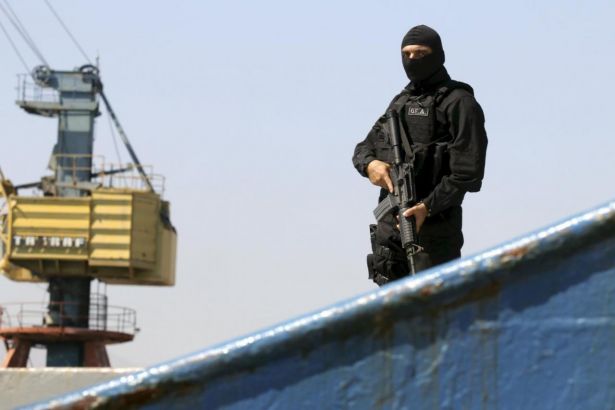Greek coast guard says captured vessel carrying explosives from Turkey to Libya

Greece’s Coast Guard said on Wednesday it had seized a vessel under Tanzania’s flag-carrying explosives from Turkey to Libya. The vessel was captured on Saturday, and was ordered to arrive at a port in the city of Heraklion on Crete. The ship was carrying eight crew members, including two Ukrainians, five Indians and one Albanian.
According to documents obtained by the authorities on the vessel, containers for shipment to Djibouti and gas cisterns for delivery to Oman have been loaded in Turkey. During the checks, the authorities found explosives, detonators and other equipment in 29 containers.
Also, on January 9, Heraklion’s authorities found 102 serious violations in the vessel’s preparations for sailing, which had put the security of the ship, crew, and cargo in danger.
"The preliminary investigation has shown that the owner of the vessel instructed the ship’s captain to go to Misurata port in Libya to unload all the cargo there," the Coast Guard’s statement read.
As deliveries of materials which may be used in Libya’s conflict are prohibited by the EU legislation, the vessel’s crew will appear before the Greek prosecutor, the authority added. Both the vessel and its cargo were confiscated. The Greek authority in charge of fighting money laundering and financing terrorism was informed about the incident.
Libya has been gripped by a power struggle between rival political groups since 2011, when its long-standing leader Muammar Gaddafi was overthrown. Tobruk-based authorities hold the most sway in the country's east and are backed by the Libyan National Army. The UN-backed Government of National Accord (GNA), led by Fayez Sarraj, is headquartered in Tripoli and controls territories in the west of the country.
The UN Security Council imposed sanctions on Libya in 2011, preventing member states from selling arms or military equipment to Libya or buying similar arms or material from it.




